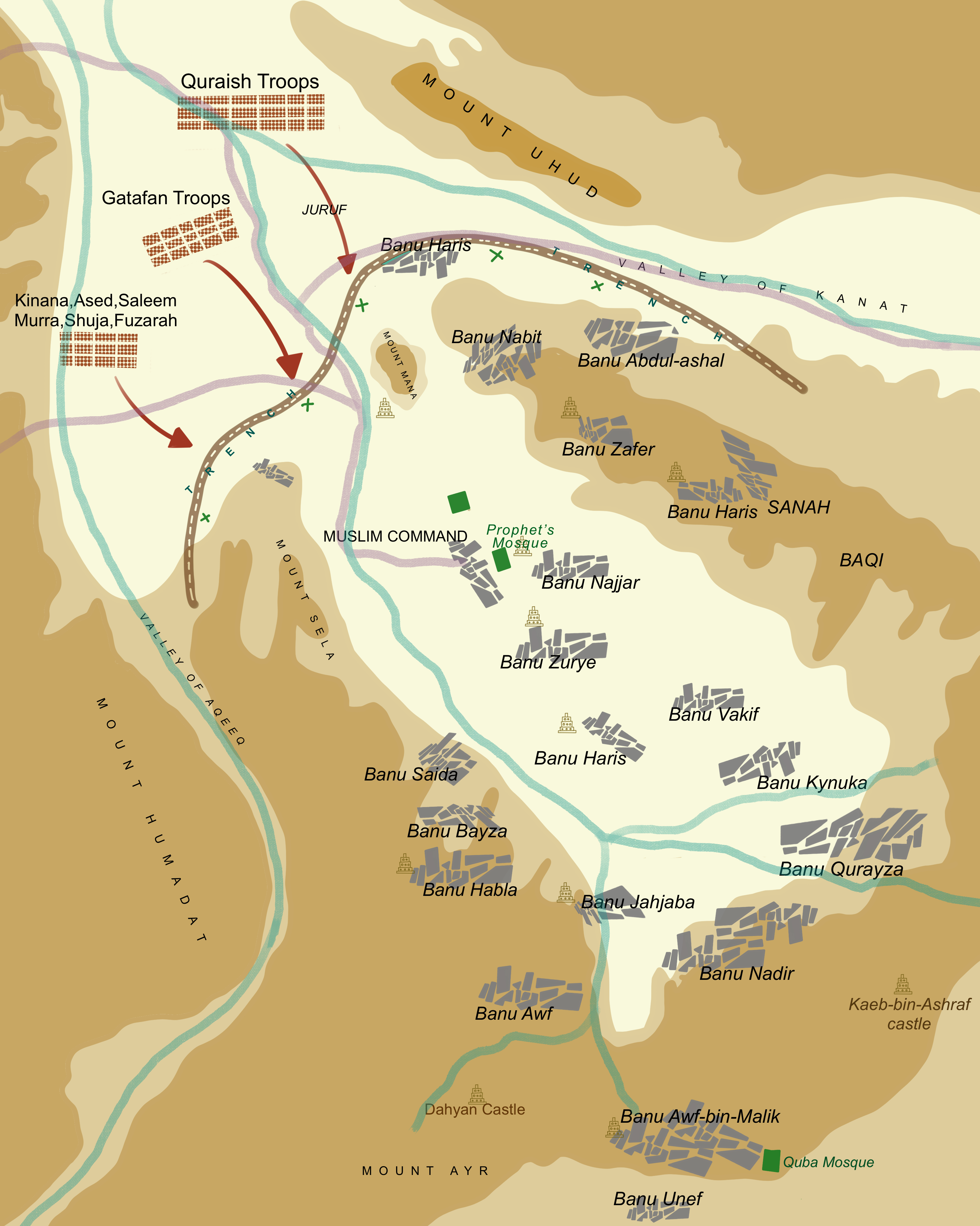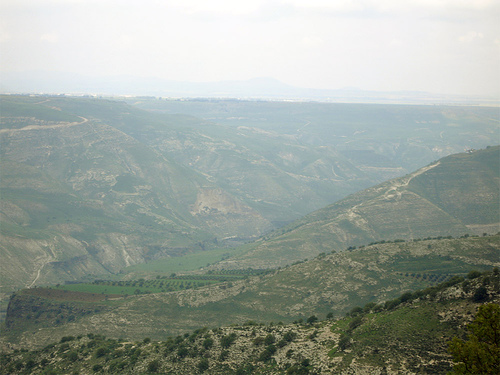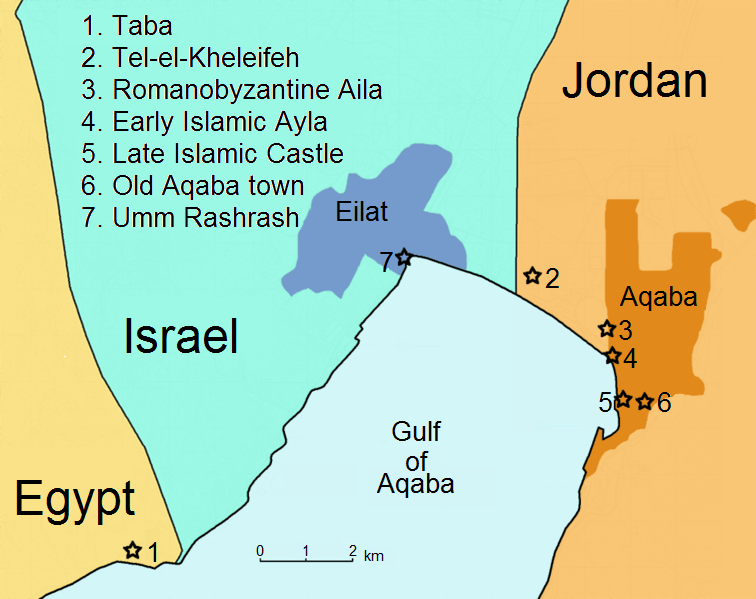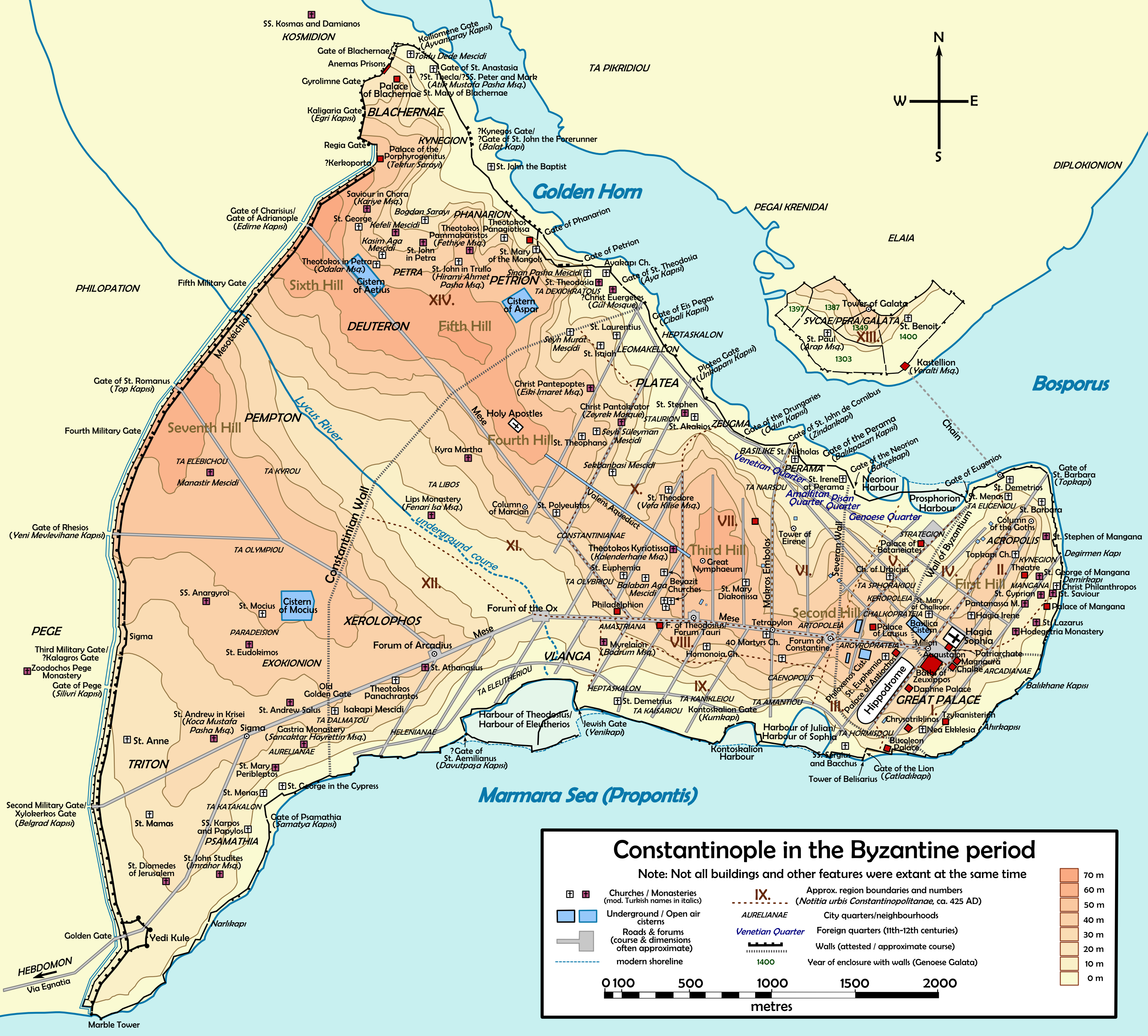|
Abu Ayyub Al-Ansari
Abu Ayyub al-Ansari (, , died c. 674) — born Khalid ibn Zayd ibn Kulayb ibn Tha'laba () in Yathrib — was from the tribe of Banu Najjar, and a close companion (Arabic: الصحابه, ''sahaba'') and the standard-bearer of the Prophets and messengers in Islam, Islamic prophet Muhammad. Abu Ayyub was one of the Ansar (Islam), Ansar (Arabic: الأنصار, meaning aiders, helpers or patrons) of the early Islamic history, those who supported Muhammad after the hijra (Islam), hijra (migration) to Medina in 622. The patronym ''Abu Ayyub'', means father (abu) of Ayyub. Abu Ayyub died of illness during the Siege of Constantinople (674–78), First Arab Siege of Constantinople. Biography Abu Ayyub was born in Medina, Hejaz as Khalid bin Zayd to the Banu Najjar, Najjar family of the Banu Khazraj. As Abu Ayyub was the head of his family, he was one of the chosen elders in Medina who went to the valley of Aqaba and pledged allegiance to Islam at the hands of Muhammad, who named him ''A ... [...More Info...] [...Related Items...] OR: [Wikipedia] [Google] [Baidu] |
Eyüp Sultan Mosque
The Eyüp Sultan Mosque () is a mosque in Eyüp district of Istanbul, Turkey. The mosque complex includes a mausoleum marking the spot where Abu Ayyub al-Ansari, Ebu Eyüp el-Ansari (Abu Ayyub al-Ansari), the standard-bearer and companion of the prophet Muhammad, is said to have been buried. On a much older site, the present building dates from the beginning of the 19th century. Because of its particular sanctity, the mosque played a role in the coronation ceremony for new Ottoman Sultans, who came here - processing along the grand Cülus Yolu (Accession Way) - to be girded with the Sword of Osman at the start of their reigns. Today it remains a popular pilgrimage destination. History The mosque is named after Abu Ayyub al-Ansari (Eyüp Sultan in Turkish language, Turkish), a Companions of the Prophet, companion and trusted friend of Muhammad, who is believed to have died here during the first Arab siege of Constantinople in the 670s. A mosque complex (''külliye'') was constr ... [...More Info...] [...Related Items...] OR: [Wikipedia] [Google] [Baidu] |
Prophets And Messengers In Islam
Prophets in Islam () are individuals in Islam who are believed to spread God in Islam, God's message on Earth and serve as models of ideal human behaviour. Some prophets are categorized as messengers (; sing. , ), those who transmit Revelation, divine revelation, most of them through the interaction of an Islamic view of angels, angel. Muslims believe that many prophets existed, including many not mentioned in the Quran. The Quran states: "And for every community there is a messenger." Belief in the Islamic prophets is one of the Iman (concept)#The Six Articles of Faith, six articles of the Islamic faith. Muslims believe that the first prophet was also the first human being Adam in Islam, Adam, created by God. Many of the revelations delivered by the 48 prophets in Judaism and many prophets of Christianity are mentioned as such in the Quran with the Arabic versions of their names; for example, the Jewish Elisha is called Elisha in Islam, Alyasa', Job (biblical figure), Job is ... [...More Info...] [...Related Items...] OR: [Wikipedia] [Google] [Baidu] |
Zubayr Ibn Al-Awwam
Al-Zubayr ibn al-Awwam ibn Khuwaylid al-Asadi (; ) was an Arab Muslim commander in the service of the Islamic prophet Muhammad and the caliphs Abu Bakr () and Umar () who played a leading role in the Ridda Wars, Ridda wars against rebel tribes in Arabia in 632–633 and later participated in early Muslim conquests of Muslim conquest of Persia, Sasanid Persia in 633–634, Muslim conquest of the Levant, Byzantine Syria in 634–638, and the Exarchate of Africa in 639–643. An early convert to Islam, Zubayr was a commander in the Battle of Badr in 624, in which the latter was instrumental in defeating the opponent forces of the Quraysh. He participated in almost all of the early Muslim battles and expeditions under Muhammad. In the Battle of the Trench, due to his military service, Muhammad bestowed the title ''Hawari Rasul Allah'' ('Disciple of Messenger of God') upon him. After Muhammad's demise, Zubayr was appointed as a commander, in the Ridda Wars, by caliph Abu Bakr. He was in ... [...More Info...] [...Related Items...] OR: [Wikipedia] [Google] [Baidu] |
Amr Bin Al'aas
Amr ibn al-As ibn Wa'il al-Sahmi (664) was an Arab commander and companion of Muhammad who led the Muslim conquest of Egypt and served as its governor in 640–646 and 658–664. The son of a wealthy Qurayshite, Amr embraced Islam in and was assigned important roles in the nascent Muslim community by the Islamic prophet Muhammad. The first caliph Abu Bakr () appointed Amr as a commander of the conquest of Syria. He conquered most of Palestine, to which he was appointed governor, and helped lead the Arabs to decisive victories over the Byzantines at the battles of Ajnadayn and the Yarmuk in 634 and 636. Amr launched the conquest of Egypt on his own initiative in late 639, defeating the Byzantines in a string of victories ending with the surrender of Alexandria in 641 or 642. It was the swiftest of the early Muslim conquests. This was followed by westward advances by Amr as far as Tripoli in present-day Libya. In a treaty signed with the Byzantine governor Cyrus, Amr guara ... [...More Info...] [...Related Items...] OR: [Wikipedia] [Google] [Baidu] |
Fustat
Fustat (), also Fostat, was the first capital of Egypt under Muslim rule, though it has been integrated into Cairo. It was built adjacent to what is now known as Old Cairo by the Rashidun Muslim general 'Amr ibn al-'As immediately after the Muslim conquest of Egypt in AD 641, and featured the Mosque of Amr, the first mosque built in Egypt. The city reached its peak in the 12th century, with a population of approximately 200,000.Williams, p. 37 It was the centre of administrative power in Egypt, until it was ordered burnt in 1168 by its own vizier, Shawar, to keep its wealth out of the hands of the invading Crusaders. The remains of the city were eventually absorbed by nearby Cairo, which had been built to the north of Fustat in 969 when the Fatimids conquered the region and created a new city as a royal enclosure for the Caliph. The area fell into disrepair for hundreds of years and was used as a rubbish dump. Today, Fustat is a suburb that lies within the modern district of O ... [...More Info...] [...Related Items...] OR: [Wikipedia] [Google] [Baidu] |
Egypt
Egypt ( , ), officially the Arab Republic of Egypt, is a country spanning the Northeast Africa, northeast corner of Africa and Western Asia, southwest corner of Asia via the Sinai Peninsula. It is bordered by the Mediterranean Sea to northern coast of Egypt, the north, the Gaza Strip of Palestine and Israel to Egypt–Israel barrier, the northeast, the Red Sea to the east, Sudan to Egypt–Sudan border, the south, and Libya to Egypt–Libya border, the west; the Gulf of Aqaba in the northeast separates Egypt from Jordan and Saudi Arabia. Cairo is the capital, list of cities and towns in Egypt, largest city, and leading cultural center, while Alexandria is the second-largest city and an important hub of industry and tourism. With over 109 million inhabitants, Egypt is the List of African countries by population, third-most populous country in Africa and List of countries and dependencies by population, 15th-most populated in the world. Egypt has one of the longest histories o ... [...More Info...] [...Related Items...] OR: [Wikipedia] [Google] [Baidu] |
Ali Ibn Abi Talib
Ali ibn Abi Talib (; ) was the fourth Rashidun caliph who ruled from until Assassination of Ali, his assassination in 661, as well as the first imamate in Shia doctrine, Shia Imam. He was the cousin and son-in-law of the Islamic prophet Muhammad. Born to Abu Talib ibn Abd al-Muttalib and Fatima bint Asad, Ali was raised by his elder cousin Muhammad and was Early Muslims, among the first to accept his teachings. Ali played a pivotal role in the early years of Islam when Muslims were severely persecuted in Mecca. After immigration () to Medina in 622, Muhammad gave his daughter Fatima to Ali in marriage and swore a pact of brotherhood with him. Ali served as Muhammad's secretary and deputy in this period, and was the flag bearer of his army. Numerous sayings of Muhammad praise Ali, the most controversial of which was uttered in 632 at the Ghadir Khumm, "Whoever I am his , this Ali is his ." The interpretation of the polysemous Arabic word is disputed: For Shia Islam, Shia Musl ... [...More Info...] [...Related Items...] OR: [Wikipedia] [Google] [Baidu] |
Al-Masjid An-Nabawi
The Prophet's Mosque () is the second mosque built by the Islamic prophet Muhammad in Medina, after the Quba Mosque, as well as the second largest mosque and holiest site in Islam, after the Masjid al-Haram in Mecca, in the Saudi region of the Hejaz. The mosque is located at the heart of Medina, and is a major site of pilgrimage that falls under the purview of the Custodian of the Two Holy Mosques. Muhammad himself was involved in the construction of the mosque. At the time, the mosque's land belonged to two young orphans, Sahl and Suhayl, and when they learned that Muhammad wished to acquire their land to erect a mosque, they went to Muhammad and offered the land to him as a gift; Muhammad insisted on paying a price for the land because they were orphaned children. The price agreed upon was paid by Abu Ayyub al-Ansari, who thus became the endower or donor () of the mosque, on behalf or in favor of Muhammad. al-Ansari also accommodated Muhammad upon his arrival at Medina in ... [...More Info...] [...Related Items...] OR: [Wikipedia] [Google] [Baidu] |
Waqf
A (; , plural ), also called a (, plural or ), or ''mortmain'' property, is an Alienation (property law), inalienable charitable financial endowment, endowment under Sharia, Islamic law. It typically involves donating a building, plot of land or other assets for Muslim religious or charitable purposes with no intention of reclaiming the assets. A charitable trust may hold the donated assets. The person making such dedication is known as a ('donor') who uses a ''mutawalli'' ('trustee') to manage the property in exchange for a share of the revenues it generates. A waqf allows the state to provide social services in accordance with Islamic law while contributing to the preservation of cultural and historical sites. Although the system depended on several hadiths and presented elements similar to practices from pre-Islamic cultures, it seems that the specific full-fledged Islamic legal form of financial endowment, endowment called dates from the 9th century CE (see below ... [...More Info...] [...Related Items...] OR: [Wikipedia] [Google] [Baidu] |
Muhajirun
The ''Muhajirun'' (, singular , ) were the converts to Islam and the Islamic prophet Muhammad's advisors and relatives, who emigrated from Mecca to Medina; the event is known in Islam as the '' Hijra''. The early Muslims from Medina are called the '' Ansar'' ("helpers"). During Muhammad's era About a month after Hamzah's unsuccessful attack in the first caravan raid, Muhammad entrusted a party of sixty ''Muhajirun'' led by Ubaydah to conduct another operation at a Quraysh caravan that was returning from Syria and protected by one hundred men. The leader of this caravan was Abu Sufyan ibn Harb. The Muslim party went as far as Thanyatul-Murra, a watering place in Hejaz. No fighting took place, as the Quraysh were quite far from the place where Muslims were in the offing to attack the caravan. Nevertheless, Sa`d ibn Abi Waqqas shot an arrow at the Quraysh. This is known as the first arrow of Islam. Despite this surprise attack, no fighting took place and the Muslims returned empty- ... [...More Info...] [...Related Items...] OR: [Wikipedia] [Google] [Baidu] |
Aqaba
Aqaba ( , ; , ) is the only coastal city in Jordan and the largest and most populous city on the Gulf of Aqaba. Situated in southernmost Jordan, Aqaba is the administrative center of the Aqaba Governorate. The city had a population of 148,398 in 2015 and a land area of . Aqaba has significant trade and tourism. The Port of Aqaba also serves other countries in the region. Aqaba's strategic location at the northeastern tip of the Red Sea between the continents of Asia and Africa has made its port important for thousands of years. The ancient city was called '' Elath'', known in Latin as ''Aela'') and in Arabic as ''Ayla''. Its strategic location and proximity to copper mines made it a regional hub for copper production and trade in the Chalcolithic period. Aela became a bishopric under Byzantine rule and later became a Latin Catholic titular see after Islamic conquest around AD 650, when it became known as ''Ayla''; the name ''Aqaba'' is late medieval. In the Great Ara ... [...More Info...] [...Related Items...] OR: [Wikipedia] [Google] [Baidu] |
Siege Of Constantinople (674–78)
Constantinople (part of modern Istanbul, Turkey) was built on the land that links Europe to Asia through Bosporus and connects the Sea of Marmara and the Black Sea. As a transcontinental city within the Silk Road, Constantinople had a strategic value for many empires and kingdoms who tried to conquer it throughout history. Known as Byzantium in classical antiquity, the first recorded siege of the city occurred in 510 BC by the Achaemenid Empire under the command of Otanes. Following this successful siege, the city fell under the rule of Persians until it won its independence again, and around 70 BC it became part of the Roman Republic, which was succeeded by the Roman Empire. Despite being part of Rome, it was a free city until it came under siege by Septimius Severus between 193–196 and was partially sacked during the civil war. After it was captured by Constantine the Great in 324, it became the capital of the Roman Empire, under the name of New Rome. It later became known ... [...More Info...] [...Related Items...] OR: [Wikipedia] [Google] [Baidu] |







